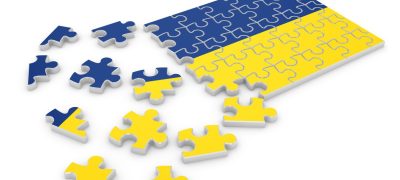Ukraine and the Eastern European NATO States Against Russia

All Global Research articles can be read in 51 languages by activating the “Translate Website” drop down menu on the top banner of our home page (Desktop version).
To receive Global Research’s Daily Newsletter (selected articles), click here.
Visit and follow us on Instagram at @globalresearch_crg.
***
The campaign for tough sanctions and further armament of Ukraine and the Eastern European NATO states against Russia is taking on ever tougher forms – also in the media.
In view of the current situation, we would like to send you a special issue of magazine Current Concerns with fundamental contributions.
Among the articles in the special issue are the following:
1. Power and World Order by Professor Dr Dr h.c. mult. Hans Köchler
“It cannot be the irrevocable fate of the human species to sacrifice reason – which is given to the individual – on the altar of the collective action for the preservation and increase of power of sovereign states that see each other as foes (as threats to their existence).”
2. Who is the aggressor? NATO and Russia with a view to Germany and Ukraine by Lieutenant Colonel (ret.) Jochen Scholz, Berlin
The propaganda in the German mainstream press about aggressive Russia is now adopted by many in German politics and society. At best, this shows complete cluelessness. This also applies to the question of why relations between Germany and the Russian Federation are now so desolate. It is therefore necessary to clarify what to make of the military threat to Ukraine posed by Russian troops, as claimed by NATO – just now again at its meeting in Riga – and as recently expressed by the German Lieutenant General (ret.) Brauss. Brauss was NATO’s Assistant Secretary General for Defence Policy and Force Planning from 2013 to July 2018. Today, he is a “Senior Associate Fellow at DGAP (German Council on Foreign Relations), working in the fields of European security and defense, NATO development, and NATO-EU cooperation.”
3. Might makes right – for how much longer? Important research results on the topic of NATO East enlargement by Karl-Jürgen Müller
The following is recorded from the weeks before the beginning of the NATO war against the Federal Republic of Yugoslavia, which was contrary to international law: At a meeting in Belgrade, a US general urged a high-ranking Serbian politician to stop listing terrorist attacks on civilians or even police and military emanating from Kosovo. His reasoning: “For Serbian policy, it’s the American perception of reality that matters, not reality as such.” The example expresses very vividly what it means when might makes right in international relations.
4. What Putin really wants in Ukraine. Russia seeks to stop NATO’s expansion, not to annex territory by Dmitri Trenin, Director of the Carnegie Moscow Centre
As 2021 came to a close, Russia presented the United States with a list of demands that it said were necessary to stave of the possibility of a large-scale military conflict in Ukraine. In a draft treaty delivered to a US diplomat in Moscow, the Russian government asked for a formal halt to NATO’s eastern enlargement, a permanent freeze on further expansion of the alliance’s military infrastructure (such as bases and weapons systems) in the former Soviet territory, an end to Western military assistance to Ukraine, and a ban on intermediate-range missiles in Europe. The message was unmistakable: if these threats cannot be addressed diplomatically, the Kremlin will have to resort to military action.
5. NATO expansion to the East is up for discussion after all by Ralph Bosshard
A few days ago, the eagerly awaited talks on the security guarantees demanded by Russia took place. In the heated atmosphere, the protagonists dampened expectations before the talks. For the Western part, the time pressure to hold comprehensive consultations had indeed been high. The climate for talks was apparently not as bad as occasionally portrayed, even if one apparently did not get beyond an exchange of opinions.1 Those who had expected much more were probably not quite realistic.
6. Constructive steps for negotiated solutions. Switzerland wants to strengthen the OSCE with its Action Plan 2022–2025 by Eva-Maria Föllmer-Müller
In the same week that the talks between Russia and the USA in Geneva, the dialogue between Russia and NATO in Brussels and talks with Russia within the framework of the Organisation for Security and Co-operation in Europe (OSCE) in Vienna as well as other talks have taken place, Switzerland is taking constructive steps and offering a hand. This shows once again that Switzerland can go its own independent way.
Click here to download the Current Concerns Special Edition.
Current Concerns is the English version of Zeit-Fragen monthly magazine based in Switzerland.
Our thanks to Zeit-Fragen.
*
Note to readers: Please click the share buttons above or below. Follow us on Instagram, @globalresearch_crg. Forward this article to your email lists. Crosspost on your blog site, internet forums. etc.
Featured image is from commons.com.ua/

